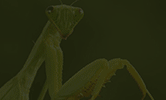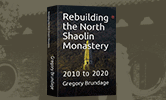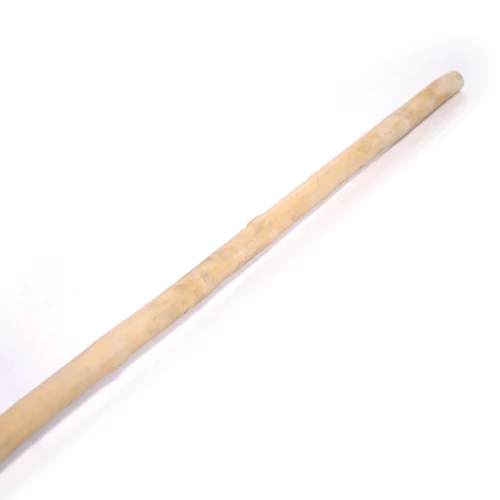A Taoist Perspective
By Francesco Garri Garripoli
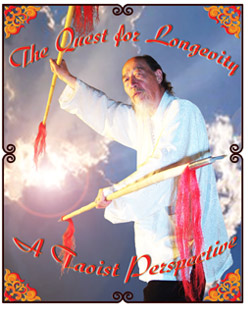 The challenge of facing our own mortality may very well be the ultimate test of being human. Next to the age-old questions relating to "the purpose of life" and the existence of God, coming to grips with the fact that we live this life and then, at some point, must die can truly stretch our intellectual limits.
The challenge of facing our own mortality may very well be the ultimate test of being human. Next to the age-old questions relating to "the purpose of life" and the existence of God, coming to grips with the fact that we live this life and then, at some point, must die can truly stretch our intellectual limits.
When we are young, we typically lie about our age to let others believe we are older. Maybe it's a practical issue relating to getting into a nightclub or just a "pride thing" in a social situation. When we are older, we find ourselves making fun of our age, and women - more than men according to psychologists - will go so far as to lie or become upset when asked about their age. Coming to grips with our age seems to be a serious human dilemma. Psychologists point out that it is the temporal nature of life on this planet that somehow makes us uneasy. Because we are not immortal, we must all face the finite nature of our existence.
The ancient cultures, from Greece to China, all created mythological beings that had one unique and common feature - they could live forever. Transcending the cycle of birth and death, the ancients could vicariously experience eternal life through these demigods and super-human beings. Whether they lived on "Olympus" or in the "Western Heaven," these beings were not tied to the rules of this world.
The ancient Taoists, those curious rebels of the mainstream Chinese culture who lived some 2,500 years ago, brought an interesting twist to immortality. They believed that it was truly possible to defy the entropic rules of nature and live beyond the standard program for life in this body. The old Taoist Masters believed that it was Qi (or Chi) that animated our physical bodies and kept us alive. This Qi existed throughout nature - and to some degree, in all things. What we eat, drink, come in contact with, and even "think" can effect the quality of our Qi. Various exercises that we now call Qigong (Chi Kung) are the results of the work that these ancients developed to strengthen the body - and spirit - and help it to transcend the limits of the everyday.
Taoist Immortals
Qigong is a practice that has a history that goes back thousands of years. The principles of this practice were known under various names throughout history such as Dao Yin, Shiu Liao, and Nei Gong. Whatever the name - even Tai Chi Chuan is a derivative of this art - these practices were designed to help the practitioner cultivate Qi, strengthen the body, and in so doing, build the spirit. The result would naturally extend one?s life beyond the normal genetic programming of the body... or maybe these exercises actually awoke the inherent genetic intelligence and produced the life that we were meant to live.
"I am in no way interested in immortality, but only in the taste of tea."
...the 400 year-old Lu T'ung, (b. 755 A.D.)
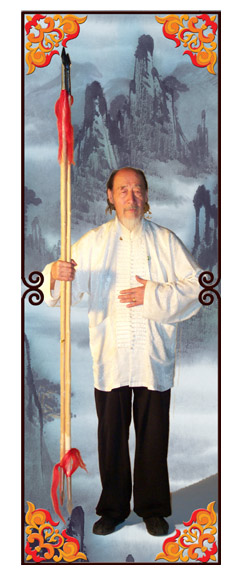 There are dozens, if not hundreds, of accounts throughout history of ancient Taoist sages who lived to be two hundred, three hundred, even four hundred years old. The Eight Immortals of Taoist lore were believed to be average people who were able to jump off the cycle of birth and death and redefine the rules of life. This is not to be confused with the Buddhist concept of reincarnation - for the Taoists, their concept of immortality was a practical one that was to be pursued in this lifetime. Cheating mortality, the Immortals are believed to be walking the Earth to this day. One of these Immortals was named Lu T'ung and was born during China's T'ang Dynasty in 755 A.D. A scholar and statesman, this old Taoist was believed to have practiced various inner arts that allowed him to live in his body for some 400 years. Although some accounts say that he actually "died" at the then ripe old age of 55 in 810 A.D., many more accounts say he lived on hundreds of years... and may still be alive.
There are dozens, if not hundreds, of accounts throughout history of ancient Taoist sages who lived to be two hundred, three hundred, even four hundred years old. The Eight Immortals of Taoist lore were believed to be average people who were able to jump off the cycle of birth and death and redefine the rules of life. This is not to be confused with the Buddhist concept of reincarnation - for the Taoists, their concept of immortality was a practical one that was to be pursued in this lifetime. Cheating mortality, the Immortals are believed to be walking the Earth to this day. One of these Immortals was named Lu T'ung and was born during China's T'ang Dynasty in 755 A.D. A scholar and statesman, this old Taoist was believed to have practiced various inner arts that allowed him to live in his body for some 400 years. Although some accounts say that he actually "died" at the then ripe old age of 55 in 810 A.D., many more accounts say he lived on hundreds of years... and may still be alive.
There is the documented account appearing in Yang Jwing Ming's book of Li Ching-Yuen who was born in Szechuan Province in 1678 AD and died in 1928 - living to the ripe old age of 250. Most of his wives died early, so he was married 14 times over the course of his life! Li was an herbalist and an avid Qigong practitioner, living in the lush mountain ranges of Szechuan. When he was 71 years of age, he joined the army of Provincial Commander-in-Chief Yeuh Jong-Chyi in 1749. It was said he practiced various Nei Gong (Inner Exercises) that prevented his body from falling prey to disease. These practices kept his organs functioning efficiently and his mind thinking clearly. This account - considered true in many historic accounts in both Mainland China and in Taiwan - gives us hope that through Taoist practice, combined with proper herbs, the potential of the human body and mind to live beyond 200 years is a tangible possibility.
During my travels through China studying Qigong, I had the great opportunity to study with many senior masters such as Duan Zhi Liang and Luo You Ming, who were well into their 90s. These great teachers had agile bodies and lucid minds. They all shared a common sense of humor, enjoying a good laugh or playing practical jokes on me. They also shared the consistent, daily practice of Qigong. I believe their vibrancy was due their utilization of Qigong's physical exercise and mental calming techniques. Implicit in their Qigong was also the spiritual world. This is the part of the practice that moves you beyond the trappings of the physical body. This is the most subtle and least understood part of Qigong, yet maybe the most powerful. It is powerful because only through accessing the "spiritual" component of life can we truly transcend the physical. This is what we call "metaphysical" in English. In Mandarin, we may say "Shen."
3 Aspects of Taoist Qi
There are actually three distinct aspects of Qi according to the Taoists. The first is called "Jing." Also known as "prenatal Qi," Jing is the Qi energy that we are born with. It comes directly from our mother and our father. In a simplistic way we can think of it as the genetic propensities that we inherit from our bloodline. To the Taoist sage, Jing also includes the "energetic" component of our heritage. This includes things like "karma" (yuan fen) and other energy qualities that came from the union of our parents. It is believed that we are born with a fixed "amount" of Jing at birth. Thus, it should be our focus to maintain this as much as possible since it cannot be replenished.
Taoist sexual practices such as preserving the semen through controlling ejaculation in men and channeling the energy of the orgasm in women (and men) are aimed at conserving and respecting Jing. The second aspect of Qi is simply known as "Qi." This is the operational energy that we require to stay alive. This "fuel" comes from all we absorb - from food to air to thoughts to environment. What we choose to ingest and experience in life dictates the quality of our Qi. The third aspect of Qi is called "Shen." This is the most ethereal component of Qi - the spirit/thought frequency of our vital life force. Though the most intangible, our Shen may hold the most promise when it comes to understanding our "mortality" and what it means to extend our life. Developing the "clarity of mind" is key to maintaining a rich quality of life; developing a connection to our spiritual core - the metaphysical aspect life - is key to truly understanding how to navigate through the mundane. Shen cultivation is one of the great benefits of Qigong practice.
It is curious that with the introduction of Buddhist thought - which stresses an emphasis on cultivating the Spirit and not necessarily the body - many Taoists seem to have abandoned their pursuit of longevity and replaced it with the Buddhist emphasis on spiritual development. The Buddhists believed that through the development of the "Shen," or spirit body, the actual physical body would stay healthy and strong. The Taoists on the other hand put their focus on developing a powerful physical body - hence their near obsession with longevity. They felt that connecting with Nature in the most intimate and direct ways, a strong and healthy body would develop. The natural result of this would be a well-developed spiritual center. Their ultimate goal was to ascend to the divine realms in an actual immortal body. It was through this connection with the Tao - the natural principles of the physical universe - that one could best pursue their development. Cultivating Qi, our vital life force, came through the physical exercises that we now know as Qigong. It also came through other waidan, or "external alchemy," practices. These included developing elixirs - actual potions made of herbs and exotic minerals. It was believed that the pursuit of these elixirs could lead to extraordinary powers and ultimately, immortality.
Li Po (or Li T?ai-po) was a Chinese poet of the T'ang Dynasty c.700-762. Born in what is now Sichuan Province, Li Po was the proverbial Taoist. After respected patronage, he was banished from the royal court for his rebellious nature. Respected for his beautiful Taoist writing, he was given amnesty by the ruling family. Scholars believe he died from cirrhosis of the liver or more likely from mercury poisoning while experimenting with the very same elixirs that were believed to deliver immortality.
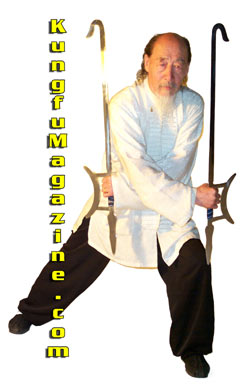
Internal Alchemy
It was at the beginning of the T'ang Dynasty that the much older waidan was being replaced with neidan - or "internal alchemy" - practices. Although it borrowed a lot of its lexicon from its predecessor, neidan focused on creating an internal elixir. This new elixir was synonymous with "transcendental knowledge" and was developed through various practices within one's own body. Not relying on concoctions, neidan ushered in a development of internal cultivation, where longevity and even immortality was the result of inner work. Balancing Yin and Yang through meditative practices and visualizations was a typical pursuit of this style of Taoist cultivation. Neidan cultivation actually drew back from the earliest philosophies presented by Lao Tzu and Chuang Tzu and is the core of Qigong practice. It was believed that these inner alchemical practices would help the practitioner retrace the creation of the cosmos, tracing the physical universe - represented in the Bagua - back to the essential Yin and Yang aspects of all existence, and then back to the singular, unified field of "non-beingness" known as Wuji. Somehow it was believed that aligning with this process, tracing back this equation within oneself, the "secrets" of the Universe would be spontaneously revealed. The ultimate secret of course was longevity - in other words, immortality.
The U.S. Bureau of Census projects that in the next 25 years the percentage of the population over 65 years of age will increase 83%. Because of this, "Age Management Medicine" is fast becoming the largest interest area in the medical industry, with organizations such as the Mayo Clinic devoting millions of dollars to study how to improve brain performance, increase energy, including sexual energy, reduce the risk of illness such as heart attack, stroke and cancer, and achieve ideal body composition, lower body fat and increased lean muscle in seniors. The curious thing is that the ancient Taoist techniques we now know as Qigong directly address each of these functions - as well as the neglected "spiritual/emotional" aspect of our well being. According to the census, the fastest growing segment of this senior population will be those in excess of 85 years! In the US, Iowa is the state with more people over 85 years of age than any other. In the world, the record goes to Japan - specifically the inhabitants of Okinawa. More people live beyond their 100th year on the island of Okinawa than anywhere else on earth according to world census data. Okinawans live in a tropical climate similar to Hawaii and enjoy a diet high in fish and vegetables. These people attribute their long lives a simple, stress-free lifestyle and it seems to work.
Maybe the "secret" of the Taoists lies in the simplicity of stress-free living, and of removing ourselves from the tensions of life. If we can?t up and fly to an island or move out into a rural area, then the answer may be found in the neidan cultivation exercises of Qigong. Seeking inner balance and reducing stress is the key to boosting our immune system. With a strong immune system, our body and mind will grow old with a quality of life that will make our "golden years" worth living, and the time to start is now.
Peace...
Click here for Feature Articles from this issue and others published in
2002 .
About
Francesco Garri Garripoli :
Francesco Garri Garripoli has practiced the Eastern healing arts for the past twenty years and enjoys being an author, television producer, and Qigong practitioner. His documentary ?Qigong: Ancient Chinese Healing for the 21st Century,? airs on PBS and he sits on the Board of the National Qigong Association and is president of the Qigong Institute. The author of ?Tao of the Ride - Motorcycles and the Mechanics of the Soul? and ?Qigong: Essence of the Healing Dance? he and his wife Daisy Lee lead annual China and Japan study trips, teach around the world, and are featured in their well-respected Qigong exercise video series. www.wujiproductions.com
![]() Print Friendly Version of This Article
Print Friendly Version of This Article


